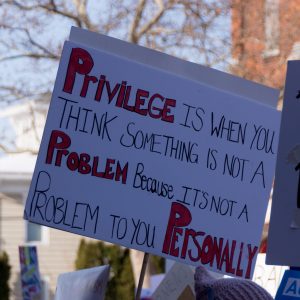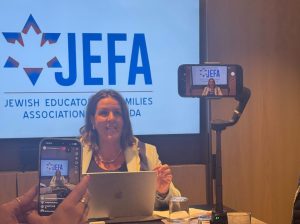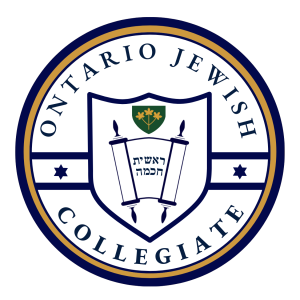The program for this year’s Association for Canadian Jewish Studies conference, being held June 1 to 3 in Vancouver, reflects a shift – or perhaps more accurately, an expansion – in the association’s focus in recent years.
Randal Schnoor, ACJS president since 2005 and a member since 1996, said in a telephone interview that he’s noticed a large focus this year on literature, visual arts and music, which together constitute about half the program.
“I think that’s demonstrating a healthy broadening of the Jewish studies field,” he said.
The conference begins with a day-long Sunday session, which is open to the public, at Vancouver’s Jewish Community Centre.
Schnoor said that it’s the most “elaborate” local program in years. It will culminate in an evening reception with Jewish authors who have written about Western Canada.
The evening will include the association’s annual award ceremony honoring this year’s recipient, Vancouver resident Seymour Levitan, an editor and translator, for his contributions to the teaching of Yiddish and Yiddish culture in Vancouver.
Arts-related sessions on the Sunday include “Canadian Jewish Music” with Messod Salama of Memorial University of Newfoundland and Moshe Denburg of the Vancouver Inter-Cultural Orchestra, and, in the evening, “Jewish Authors of Western Canada” with Nancy Richler, Norman Ravvin and Joe Rosenblatt.
At the rest of the conference, being held at the University of British Columbia, arts-related sessions include “Canadian Klezmer: A Representation of a Double Diaspora” with Mike Anklewicz of York University; and “The Narrative of Visual Arts,” which will feature speaker Barbara Weiser of Concordia University on “Synagogue Art in British Columbia” and Toronto librarian Phil Gold on “The Life of Joe Shuster and the Canadian Connection to Superman.”
Also, on June 2, Toronto filmmakers Leonard Pearl and Richard Gagné will discuss the progress of a film they are making on Jewish Canadians.
Reflecting a newer subject of academic interest, at a session titled “Notions of Identity,” Donna Goodman of Concordia University will discuss “Reflections of the Canadian Diaspora Through the Window of Cookbooks.”
Schnoor says the association, which has about 150 members, is now “much more open” to looking at popular culture. “I think the more ways we can explore Jewish life in Canada, the more interesting it is.”
The conference is held annually in conjunction with other conferences as part of the nine-day Congress of the Humanities and Social Sciences, “a Canadian body of learned societies,” said Schnoor.
Sometimes there are joint sessions with other societies – such as one with the Canadian Society of Medievalists – “which enriches the quality of what we’re doing,” he said.
Also, Schnoor added, it provides an opportunity for scholars to attend sessions at the other conferences.
Although the locale of the ACJS conference is dictated by the larger group, “part of our tradition is to combine with the local community, with one day out of three where we hold our events at the community centre or the local synagogue,” said Schnoor.
Regarding his own involvement with the association, Schnoor said he thinks that it’s “important to promote research on Canadian Jewish life… and I enjoy doing it.”
A sociologist specializing in contemporary Jewish life in Canada and the United States, Schnoor said his field, which dates back to an increased interest in ethnic groups in the 1960s, is a less-traditional area of Jewish studies than Bible, Jewish history and Hebrew language research. “In the last few decades, the field has broadened out.”
For information or to register for the Sunday program at the JCC, visit www.jewishmuseum.ca/info/current_events/acjs-event, or call 604.638.7287.






